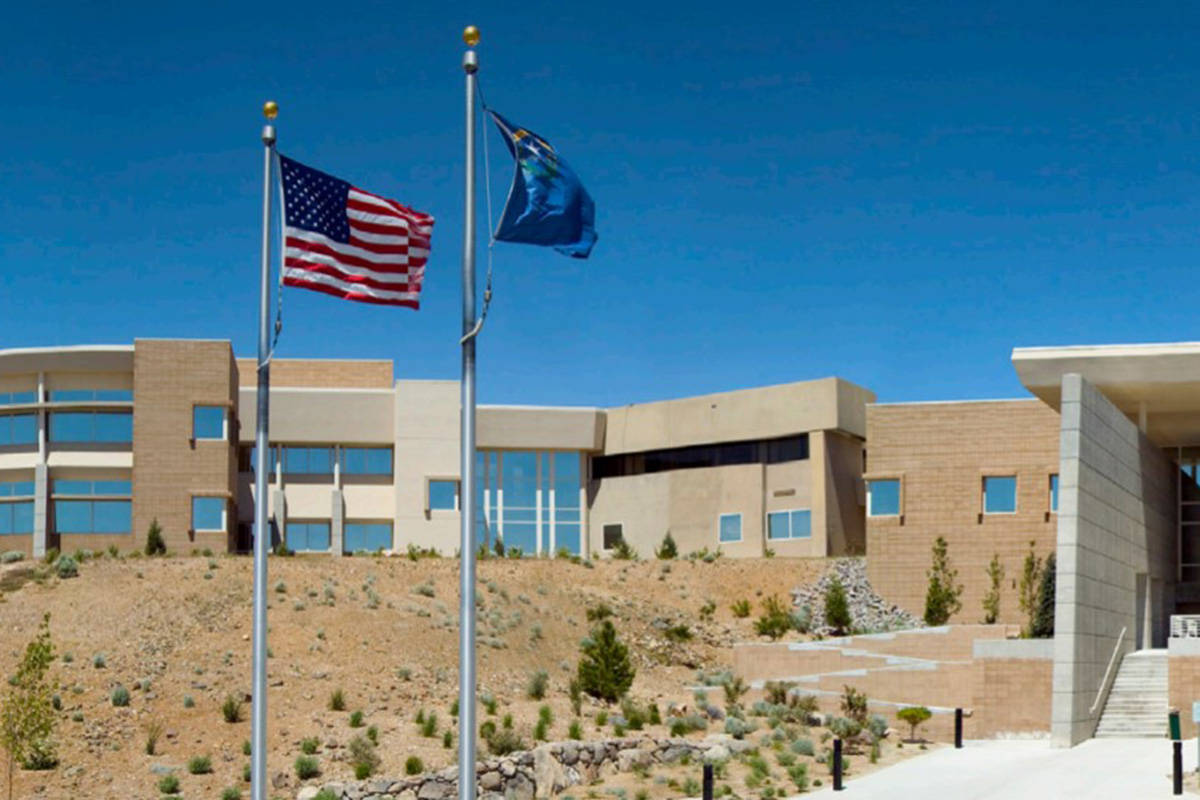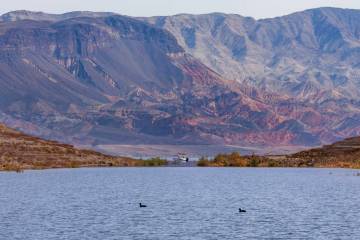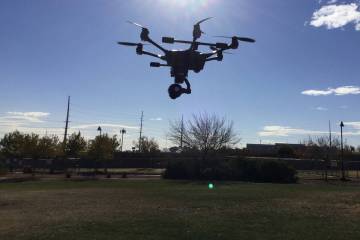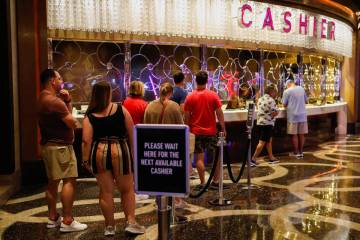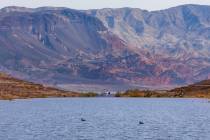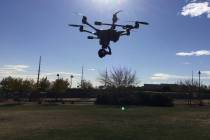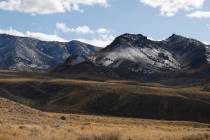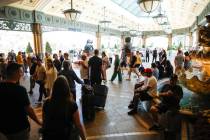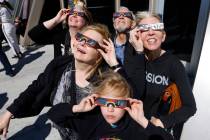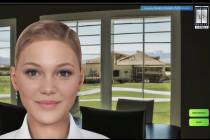Desert Research Institute shifts focus during pandemic
When the COVID-19 pandemic broke out, scientists at the Desert Research Institute quickly realized that their projects could be modified to help with coronavirus research in Nevada.
The institute is known for the environmental research its name implies, but it also studies community health and the economic and social factors that tie into it.
Institute scientists are gathering data on the pandemic, as well as people’s reactions to and perceptions of COVID-19.
“Sometimes people are suspicious of this kind of government research,” said Joe Grzymski, an associate research professor at the institute. “But scientists need hundreds of hundreds of thousands of participants from every state to even get a handle on COVID-19.”
DRI partnered with the Renown Institute for Health Innovation three years ago to start the Healthy Nevada Project, a first-of-its-kind community study that combines a wide variety of health factors to identify risks and provide models that could improve health care throughout the state.
“HNP was started, obviously, under very different circumstances,” said Grzymski, a microbiologist and geneticist who works as principal investigator for the project. “When it became apparent that (COVID-19) would be a problem, we recognized the value of the project and our consent database.”
Generally, researchers in the medical field expect a low number of responses to surveys, Grzymski said, so staff members were surprised when the program sent its first COVID-19 questionnaire to 50,000 participants and heard back from more than 20,000.
Early responses to the first survey, which was sent in March, provided data on Nevadans’ recent travel history, possible exposures and symptoms. A second survey focused on behavior changes such as social distancing, hygiene habits and working from home.
“Eventually, this will provide tremendous insight into the types of infrastructure that is necessary to stop these things when they happen,” Grzymski said.
‘User-driven science’
It’s difficult for the study to accept new applicants in the midst of the pandemic, but Grzymski said researchers are working on ways to open the survey to all Nevadans.
Another initiative is encouraging as many people as possible to participate by sharing their COVID-19 stories in snippets that can be as short as a tweet.
“My COVID-19 Journey” is a project that collects stories about people’s experiences during the coronavirus pandemic along with data to help add context and interpret patterns.
It launched at the end of March as a collaboration between the institute’s social scientists, the Human System Dynamics Institute and technology platform Spryng.io.
The project is a type of “user-driven science,” said Tamara Wall, a sociologist and deputy director of the Western Regional Climate Center. “It’s also a way for people to ground their experience with COVID-19.”
Wall’s usual research focuses on natural disasters and their effect on people. The goal of this project is to identify larger patterns and share that data with decision makers, who can then use it to tackle trends and threats.
For example, Wall said, if infection rates are high and data shows people aren’t following guidelines, that might signal that officials need to focus more on public messaging.
When the Desert Research Institute is ready to start sharing the data, it will be posted publicly in an online “COVID-19 Cognitive City” hosted on Exaptive. But first the institute needs to collect enough information to work with.
“We need to get the numbers to be able to find the patterns,” Wall said. “It’s a little bit of a numbers game.”
The project is open to anyone around the world, and people are encouraged to tell as many stories as they want, so researchers can track changes over time.
Teachers, students
The institute’s Science Alive education program had to get creative to serve a more immediate and local need: teachers and students stuck at home.
“There’s a big need from the teachers right now, and we know there’s a big need in Nevada,” said Craig Rosen, community engagement and professional development administrator for Science Alive.
The program developed several learning modules on careers in science, desert wildlife and environmental topics, and adapted its EnergySmart Education curriculum for at-home learning.
Adapting the programs from traditionally hands-on projects to online learning has been a challenge, Rosen said.
“Our priority is putting it in the hands of teachers so they can continue doing what they do best,” he said.
All of the Science Alive resources are available online, and the program frequently updates its Facebook page with videos and activities.
Science Alive aims to inspire the next generation of researchers, and Grzymski hopes the institute’s current projects will help drive home the importance of large-scale research.
“When you make investments in these kinds of large studies, people always ask why,” he said. “But all of the time and effort and resources put into these are now proving to be extremely beneficial, especially in unforeseen circumstances like this.”
Contact Max Michor at mmichor@reviewjournal.com or 702-383-0365. Follow @MaxMichor on Twitter.



